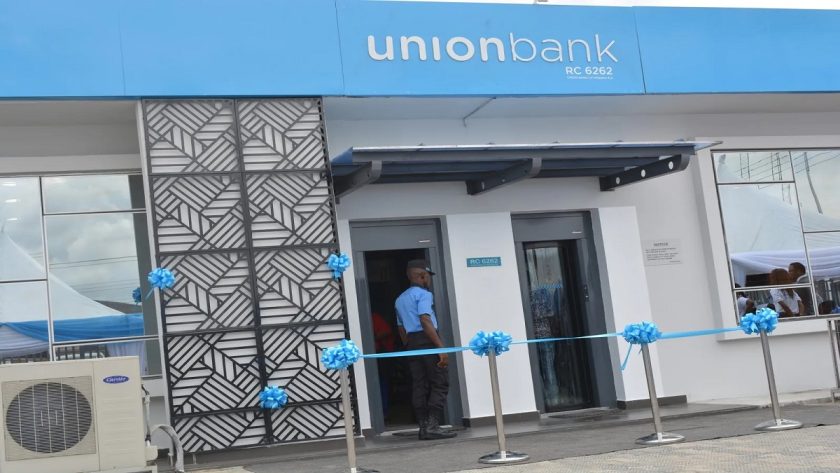GCR Downgrades Union Bank of Nigeria Ratings over Deteriorated Capital
GCR Ratings has downgraded Union Bank of Nigeria (UBN) Plc.’s national scale long-term and short-term issuer ratings to BBB-(NG) and A3 (NG) from BBB+(NG) and A2(NG) respectively.
In a rating note, the emerging market Africa rating agency said Concurrently, it has also downgraded the national scale long term issue rating of Union Bank of Nigeria Plc.’s N6.3 billion Series 2 Senior Unsecured Bonds to BBB-(NG) from BBB+(NG). \
The rating outlook is revised to Evolving from Rating Watch Negative; according to GCR Rating note obtained by MarketForces Africa.
GCR said the rating downgrade on Union Bank of Nigeria Plc. reflects a material deterioration in capitalisation with the capital adequacy ratio (CAR) below the regulatory minimum of 10% for its licensed category.
The rating also recognises obligor and currency concentration in the loan book and increased percentage of stage 2 loans to gross loans relative to peers, the rating note said.
UBN’s good domestic franchise continues to support a stable funding structure and good liquidity, GCR said in the latest credit report on the bank.
The emerging market rating agency stated that the evolving outlook reflects possible changes in the credit profile of the Bank post-consolidation with Titan Trust Bank Limited, added that UBN’s capitalisation is a significant restraint to the ratings.
The ratings note said Union Bank is in breach of regulatory capital adequacy ratio (CAR) which settled at 7.1% as at 31 December 2023 from 14.4% in the prior year.
The breach, according to GCR, was caused by additional provisions on some major loans as required by CBN; and the impact of Naira devaluation on the Bank’s risk weighted assets.
The rating firm noted that significant portion of the Union Bank loan book is foreign currency denominated, which was 66.4% of the portfolio in 2023, up from 49.3% in financial year 2022.
The GCR core capital ratio – which includes regulatory risk reserves- also moderated to 10.9% as of 30 June 2024 from 11.6% in FY 2023 and 14.5% in 2022 registering within the low band of the rating firm’s assessment.
“We expect the GCR core capital ratio to register between 10%-12% over the rating outlook, predicated on positive earnings generation and retention as well as management’s plan to moderate risk asset creation and FCY exposures”.
Positively, loan loss reserve coverage of stage 3 loans was strong at 173.3% as of 30 June 2024 from 129.5% in 2023; and 43.2% year 2022. However, coverage of stage 2 and 3 loans was low at 13.2% as at the same date, according to GCR.
In view of the regulatory driven recapitalisation of the banking sector, UBN’s capital base could strengthen over the next 12-18 months through equity injection from its shareholders, GCR said, noting that risk is negative to Union Bank of Nigeria’s ratings.
The Bank’s asset quality metrics reflect high obligor concentration, increasing credit losses, high stage 2 loans and high foreign currency loans due to the impact of naira devaluation and general macroeconomic challenges, GCR said.
It said credit losses ratio of the bank printed at 5.2% as of 30 June 2024, a level that was above industry’s average. The Bank’s stage 3 loans as a percentage of gross loans improved to 3.7% as of 30 June 2024 from 3.8% in 2023 and 7.4% in 2022 following the reclassification of some stage 3 loans to stage 2.
GCR wrote that stage 2 loans to gross loans which historically averaged 22.0% (2018-2022) increased to 35.2% as at 31 December 2023 and further to 44.9% as of 30 June 2024, largely consisting foreign currency loans to power sector and syndicated oil & gas sector loans.
Analysts said although the management indicated these stage 2 loans were restructured and are now performing in line with restructured terms, GCR is of the opinion that the performance of these exposures remains susceptible to the weak macroeconomic environment.
Obligor concentration persists in the loan book, with the twenty largest obligors accounting for 68.2% of gross loans as of 30 June 2024 from 76.0% in 2023 and 66.0% in 2022.
The rating note emphasized that UBN’s top five obligors breached the regulatory single obligor limit (SOL) of 20% of shareholders’ funds as at the same date, due to the impact of naira devaluation.
The bank currently benefits from regulatory forbearance, with expectations that the planned recapitalisation could remediate the breaches barring any further devaluation in the local currency, GCR said.
It added that the percentage of foreign currency loans to gross loans remained higher than peers registering 66.0% as of 30 June 2024 versus 66.4% in FY 2023 and 49.3% in 2022.
The ratings also hint that UBN is in the process of converting these loans to local currency loans, but this will be subject to the availability of foreign currency.
Looking ahead, the Bank’s asset quality may remain pressured by the weak operating environment, GCR Ratings said in the report. The ratings note said UBN’s competitive position is a key rating strength, supported by a track record of over ten decades in the Nigerian banking industry.
GCR explained that the evolving outlook reflects possible changes in the credit profile of the Bank post-consolidation with Titan Trust Bank Limited. #GCR Downgrades Union Bank of Nigeria Ratings over Deteriorated Capital

